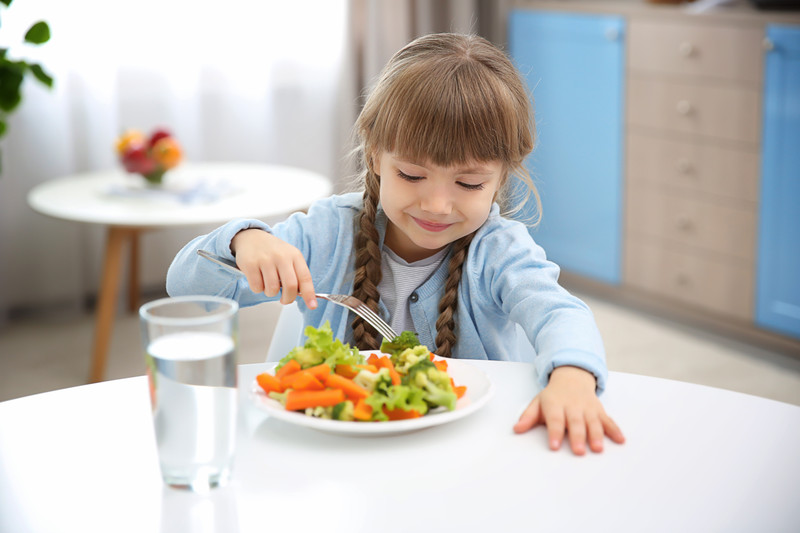Teaching kids healthy eating habits from a young age sets the foundation for lifelong wellness. With today’s fast-paced lifestyle and the easy availability of processed foods, it can be challenging to instill good eating habits in children. However, with the right approach, you can help your child develop a positive relationship with food, making nutritious choices enjoyable and sustainable.
1. Be a Role Model for Healthy Eating
Children learn by example, so practicing what you preach is one of the best ways to encourage healthy eating. When kids see their parents and caregivers choosing whole foods, enjoying fruits and vegetables, and eating balanced meals, they are more likely to adopt the same habits.
Tips for Being a Good Role Model:
- Eat meals together as a family to promote healthy food choices.
- Show enthusiasm for nutritious foods rather than focusing on food restrictions.
- Avoid negative talk about food (e.g., labeling foods as "bad" or "off-limits").
2. Make Healthy Eating Fun
Kids are more likely to eat healthy foods when they are involved in the process and find it enjoyable.
Ways to Make It Fun:
- Create colorful meals – A variety of vibrant fruits and vegetables makes food visually appealing.
- Let kids build their own plate – Give them options to mix and match healthy foods.
- Use fun shapes and presentations – Cut sandwiches, fruits, and veggies into fun designs using cookie cutters.
- Try theme nights – “Rainbow Meal Night” where every dish includes different-colored veggies.
3. Get Kids Involved in Cooking
Allowing kids to help in the kitchen builds their confidence and increases their interest in healthy foods.
Kid-Friendly Cooking Activities:
- Let them wash vegetables, stir ingredients, or assemble sandwiches.
- Allow them to pick a new healthy recipe to try each week.
- Teach them to read nutrition labels and make better food choices.
- Take them grocery shopping and let them choose a new fruit or vegetable to try.
4. Encourage Mindful Eating
Teaching kids to listen to their hunger and fullness cues helps them develop a healthy relationship with food.
How to Promote Mindful Eating:
- Avoid distractions during meals – Turn off the TV and put away devices.
- Encourage slow eating – Teach kids to chew thoroughly and enjoy each bite.
- Help them recognize hunger cues – Ask, “Are you still hungry, or are you just bored?”
5. Offer Healthy Snack Options
Healthy snacking is an important part of a child’s diet, providing energy and essential nutrients throughout the day.
Smart Snack Ideas:
- Fresh fruit with yogurt
- Whole-grain crackers with cheese
- Nuts and seeds (for older kids)
- Veggies with hummus
- Homemade smoothies
Having pre-cut fruits and veggies ready in the fridge makes it easier for kids to choose healthier snacks.
6. Teach Portion Control Without Strict Rules
Instead of forcing kids to clean their plate, teach them how to listen to their body and recognize appropriate portion sizes.
Tips for Portion Awareness:
- Serve meals on smaller plates to avoid oversized portions.
- Let kids serve themselves to encourage self-regulation.
- Teach them the difference between everyday foods (fruits, veggies, whole grains) and occasional treats.
7. Don’t Use Food as a Reward or Punishment
Avoid using desserts or treats as a reward for eating vegetables or finishing meals. This can create an unhealthy emotional connection to food and make kids associate some foods as "better" than others.
Better Approaches:
- Encourage kids to try new foods without pressure.
- Praise them for trying something new, even if they don’t love it.
- Focus on how food makes them feel rather than making eating a chore.
8. Make Hydration a Priority
Sugary drinks can contribute to excess sugar intake, leading to energy crashes and unhealthy eating habits. Encourage water as the main beverage for hydration.
Tips for Keeping Kids Hydrated:
- Offer infused water with fruits like lemon, berries, or cucumber.
- Provide unsweetened herbal teas as a fun alternative.
- Keep a refillable water bottle handy for school and playtime.
9. Support Gut Health with Probiotics
A healthy gut microbiome is essential for digestion, immunity, and overall health. Probiotics help maintain gut balance, reducing inflammation and improving nutrient absorption.
Sources of Probiotics:
- Yogurt and kefir
- Fermented foods like sauerkraut and pickles
- Probiotic supplements
Recommended: DC Labs Super Probiotic – A high-quality probiotic supplement to support digestion and immune function in children.
10. Provide a Balanced Multivitamin for Nutritional Gaps
Even with a healthy diet, kids may not always get enough vitamins and minerals from food alone. A multivitamin can help fill the gaps and ensure they get all the nutrients needed for proper growth and development.
Recommended:
- DC Labs Buddy Bears Children's Chewable Multivitamin – A fun and delicious chewable multivitamin packed with essential nutrients.
- Drucker Labs IntraKid 2.0 Liquid Multivitamin – A comprehensive liquid multivitamin formulated for growing kids.
A Note from Us
Teaching kids healthy eating habits doesn’t have to be overwhelming. By making nutrition fun, accessible, and engaging, you can help your child develop lifelong healthy eating patterns.

